Artificial Intelligence
Author: Daniel Hulme, CEO at Satalia
Over the coming few decades we’re going to see a massive change in the way we interact with our environment, and each other. Much of these changes were once in the realm of science fiction, but Artificial Intelligence (AI) is going to make much of that reality. This change will raise many ethical questions, and will force us to reassess our social and economic models. Many of the questions that philosophers have been pontificating over the millenia will now have to be practically addressed. But what should be the goal of a smart city or neighbourhood? I hope that countries will optimise for happiness as opposed to GDP, and I hope that we will start to cooperate as a united planet instead of a divided one.
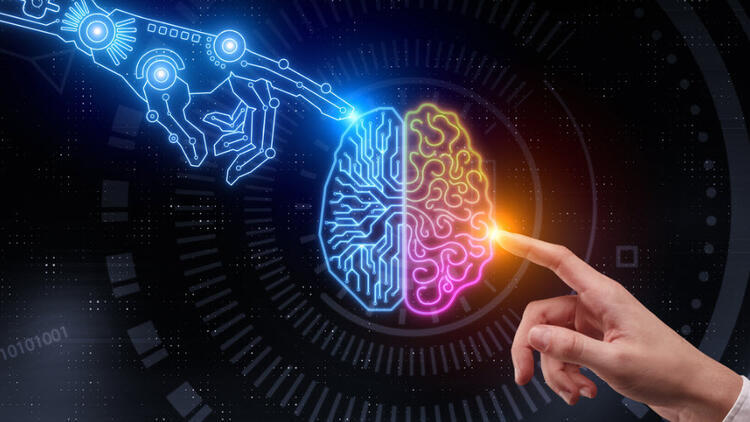
The best definition of intelligence that I've ever found is "goal-directed adaptive behaviour" by Steinberg & Salter (1982). Without an objective - a goal - it's impossible to compare the success of one intelligent system over another. Naturally, the system has to have the ability to move - or behave - towards a goal. The critical element that distinguishes the intelligence of one system over another is its ability to adapt. If a system can adapt its physical body and mental model faster and better than another system with the same goal, then I would argue that it's more intelligent. In fact the popular definition of stupidity and insanity is “doing the same action over again and expecting a different outcome”.
Through the process of evolution, biological life has developed physical and mental plasticities that allows it to adapt to the environment, such as the ability to regulate temperature, to learn from mistakes, and to change pigment as camouflage. Bodies enable us to interact with the environment in complex ways, such as to forage for food, seek suitable mates, and fend off predators. Some biological life have developed the ability to not just adapt itself to the physical environment but to adapt the physical environment to itself, such as building nests, cultivating food, and setting traps. Some species collaborate to form complex societies and even cooperate with other species to form ecosystems to increase their robustness and resilience. Others have even developed tools and technologies that have extended their physical reach so as to adapt the environment to better suit their needs.
We've learnt to master fire and electricity, to heat our homes and communicate over incredible distances. As such, it could be argued that humans are the most adaptable species on this planet. We can't fly or survive underwater, but we can adapt to our environment and build technologies that enable us to survive in even the most hostile of places. Perhaps there are more resilient and robust species - ones that could survive unpredictable changes in our environment, such as an unexpected volcanic eruption that would make our atmosphere uninhabitable by humans - but there are arguably none as creatively agile as us.
For millions of years, biological life has been intelligently adapting its environment to enable it to thrive. However, since the start of this century our species has established a new paradigm; we've begun building environments that intelligently adapt to us. AI is starting to be used to automatically control the temperature in our homes, recommend what products we should buy, and advise us about what to eat to live longer, healthier and happier lives. Like biological systems AI consumes data from a myriad of sensors. Whether we carry these devices around - like our phones - or they are embedded in the walls and objects we interact with, we're seeing an explosion of sensory data that is being mined for insights. This technology is often called the Internet of Things (IoT), and it's becoming the eyes and ears of AI.
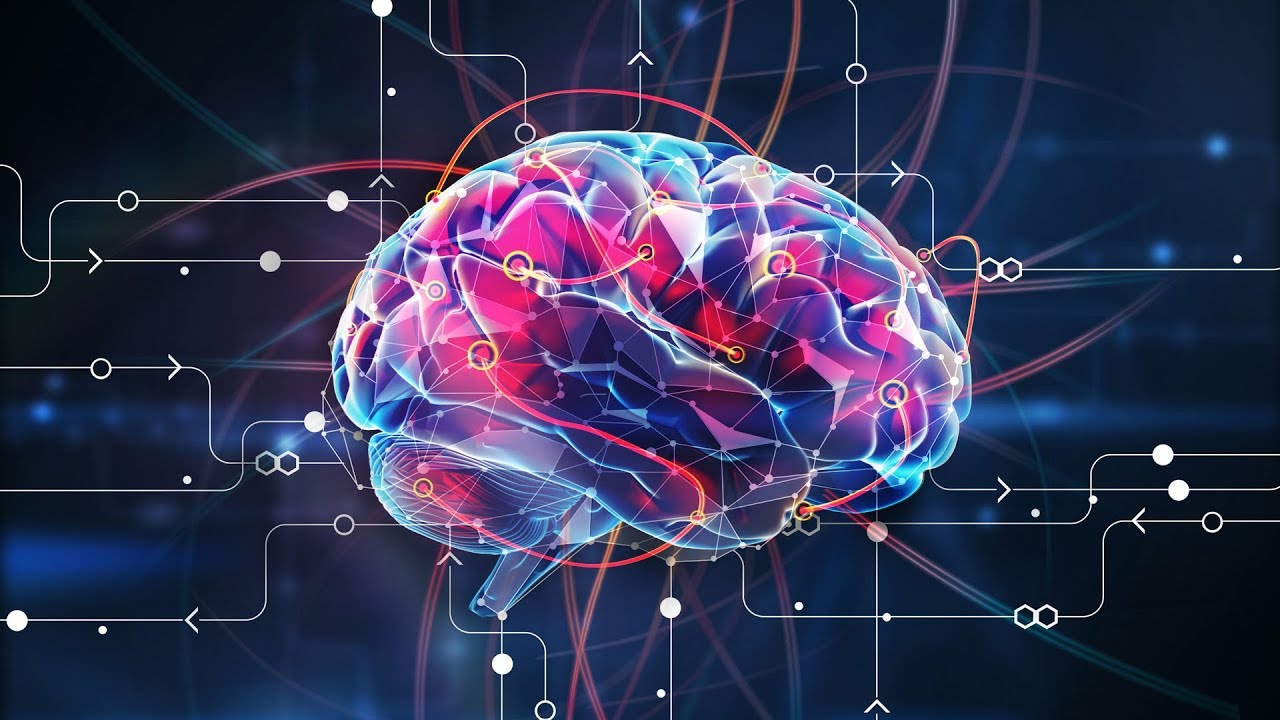
If Moore's Law continues - where computers double in speed every 18 months - then over the coming decades these devices will become exponentially smaller, perhaps small enough to run through our veins and gather detailed data about our physiology. This data will surface insights that will enable our environment to intelligently interact with us in ways we can't yet imagine, and some people believe that it will even allow us to cheat death.
Aside from predicting when to make us coffee or when our autonomous car should pick us up from the office, our environments will learn to make our lives more comfortable by collaborating and interacting intelligently with itself. 400 million years ago, the formation of the earliest eyes caused the Cambrian explosion of diverse biological life. In perhaps the same way I would imagine that we will see an explosion of technology, stemming from the convergence of an abundance of sensory data with the ability for our environments to reconfigure and perhaps construct themselves without human intervention or guidance - environments building environments.
The intelligent environments we're building form the fabric of our physical and digital interactions. With virtual and augmented reality on the horizon we might see people living more and more in virtual worlds; worlds that allow us to suspend all of physics and reality. Perhaps we can't yet imagine how magnificent and absorbing those worlds will look and evolve. We don't know how it will change the way we interact with the physical and virtual objects, AI agents and each other. Nor do we know what impact these adapting environments and intelligent worlds will have on our physiological development, emotional intelligence and social attachments.
For millennia, philosophers have been debating about how society should be structured and what it means to live a 'good' life. As our environments start to intelligently interact with us we're giving them the power to create and destroy. We have to embed ethical behaviors into these systems, which makes it an extremely exciting time for humanity, because we now have to agree on what those ethical behaviours should be.
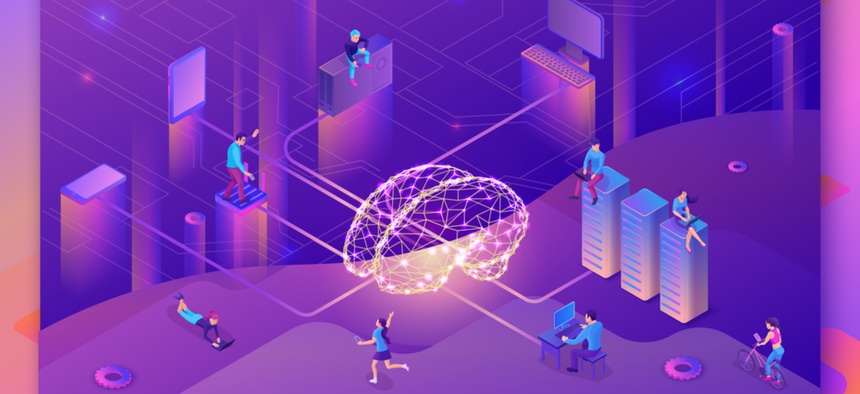
Blockchain technology is giving the world a trusted data platform, and AI is providing the means to collaborate and connect without friction. Over the coming decade we might see the emergence of a DAO (Decentralised Autonomous Organisation) - that will allow for truly decentralised and distributed decisions and actions. I can imagine a world whereby anyone could boot up a project by launching a DAO that enabled contributions from anywhere in the world. The DAO is similar to the open-source movement, but in this new paradigm, anyone - software engineers, designers, marketers, accountants and even strategists - will be able to rally around an idea and contribute to its development. Work won’t be provided for free or kudos, as in the open-source model: instead, fiscal remuneration will be determined by the quantity and quality of the contribution. This means that anyone will be able to contribute to a project, even just for a few hours, and they would be rewarded fairly for their work. As people worked on these open projects, the DAO captured their contribution on a public blockchain. These contributions accumulated to form a reputation that determined the rate of remuneration on future projects. People developed different rates for different skills, and the rate evolved dynamically over time. You would be paid a different rate for marketing work than for software development, depending on your relative skill in each.
Many of these open projects will use digital tokens as their economic model. A cambrian explosion of funding models will appear, such as ICOs (initial coin offerings) and other types of token sales. Selling tokens will give DAO projects the capital to get started. By reducing the waste and friction we may reach a point whereby new innovations helped ensure that everyone’s basic needs are met. Giving everyone seamless access to healthcare, nutrition and education will mean that people have the freedom to create and contribute to DAO projects without the need for initial funding. Since digital tokens have no jurisdiction, contributors from anywhere in the world can be remunerated with the same currency. Someone in Europe who contributed the same value to a DAO project as someone in India would receive the same remuneration. And because everyone has a fair opportunity to contribute to DAO projects, there may be a rapid redistribution of wealth.
One of the founding principles of the DAO is that all products are open source. The creation of a completely frictionless free market, where the cheapest and best-placed people could contribute means that toxic companies are starved of labour and customers. Efficient markets coupled with conscientious consumption could spawn tens of thousands of new organisations whose products and services are developed to meet real needs and provide real benefits.
People will be able to work anywhere they want, which could cause mass migration. Digital nomads could force governments to reassess and innovate their policies to attract and retain corporations and talent by reducing taxes, and slackening employment laws. The freedom to work anywhere will cause substantial population shifts, and re-energised communities, with people growing their own food, harnessing natural energy sources, and turning away from mass-produced or packaged solutions. This re-emergence of community after years of isolated self-interest could have a huge impact on happiness levels of all age groups.
Hotels will need to adapt to stay relevant, and look to other industries to learn best practice. They'll need to go through a period of digital transformation which, despite the hype, is about investing in the cloud, infrastructure and data lakes to get their data in a good shape. The goal being to build a digital twin, the digital mapping of a hotels physical and non-physical assets (people, data, rooms, buildings, processes, interactions) which will form the foundation of numerous insights and applications.
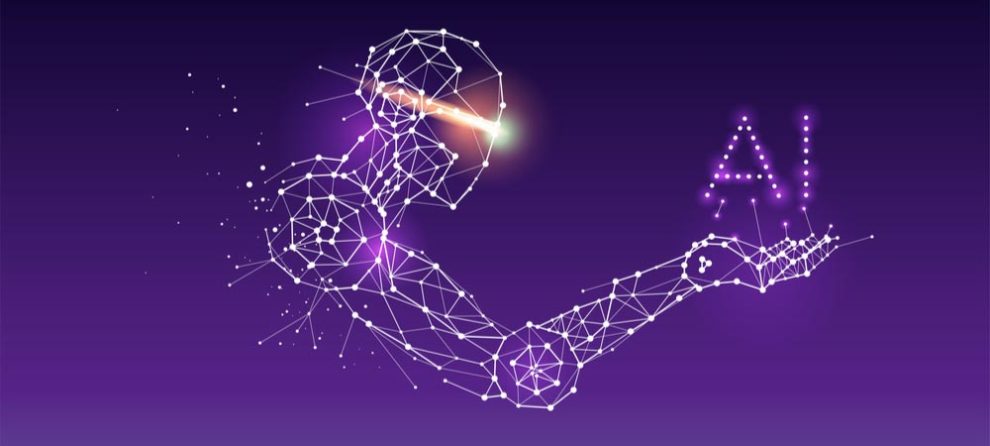
Beyond that, they'll need to invest in predictive systems (machine learning) that can predict demand, predict maintenance and profile employee skills. Machine learning is great at making predictions or finding patterns from data, but not good at making decisions or allocating resources - that’s the realm of optimisation, an entirely separate skill set that's much less hyped about. If machine learning can predict hotel demand and profile employee skills, optimisation can produce hourly employee schedules that efficiently satisfy that demand, saving millions through increase employee yield, improving employee wellbeing and customer satisfaction. Most don't realise the complexity of these types of problems (watch video here) and are wrong in thinking they can solve deep, complicated optimisation problems by hiring a few data scientists. Hotels need to act fast and invest heavily in both technology and talent to stay relevant in the future.
Also, find these complementary content pieces on Artificial Intelligence (AI)
- VIDEO l Use Cases of Artificial Intelligence and Machine Learning in the Hospitality Industry
- PODCAST l Discussion about how to leverage and work with AI in the Hospitality Industry with Vivien Richter from seatris.ai, Brendan May from HERA Hotel Res Bot, Frank Reeves from Avvio, and Benjamin Devisme from Quicktext, hosted by André Baljeu
- INFOGRAPHIC l A visual Guide to Artificial Intelligence, created in collaboration with Avvio
Find all techtalk.travel editorials here.
You might also find interesting:
- Video l Daniel Hulme about Robots and AI replacing Humans at HEDNA Conference in Madrid in 2019
- Full Length Video Interview l Daniel Hulme at HEDNA Conference in Madrid 2019
- Video l Daniel Hulme on the Universal Basic Income at HEDNA Conference in Madrid 2019
- Video l Daniel Hulme on the Digital Twin at HEDNA Conference in Madrid 2019
- Video l Daniel Hulme on the Hotel Opportunity with AI at HEDNA Conference in Madrid 2019
- Video l Daniel Hulme on Funding & Investing in AI at HEDNA Conference in Madrid 2019
- Video l Daniel Hulme on Ethics of AI at HEDNA Conference in Madrid 2019
- Video l Daniel Hulme on Decentralisation of Decision Making at HEDNA Conference in Madrid 2019
- VIDEO l Johannes Thomas, Managing Director of trivago on AI



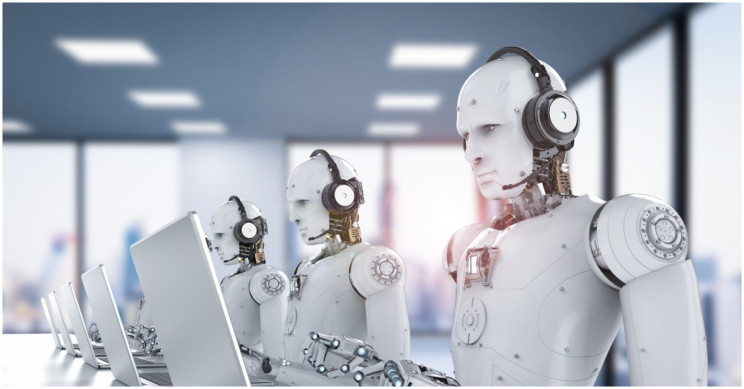
 Free download
Free download
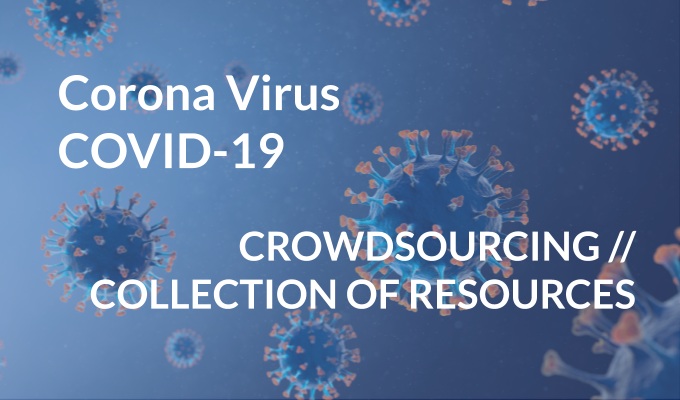
![V03: The History of Hotel & Travel Technology | [Updated] Infographic](https://www.techtalk.travel/storage/app/uploads/public/63f/e6f/ec8/63fe6fec80447817849943.jpg)
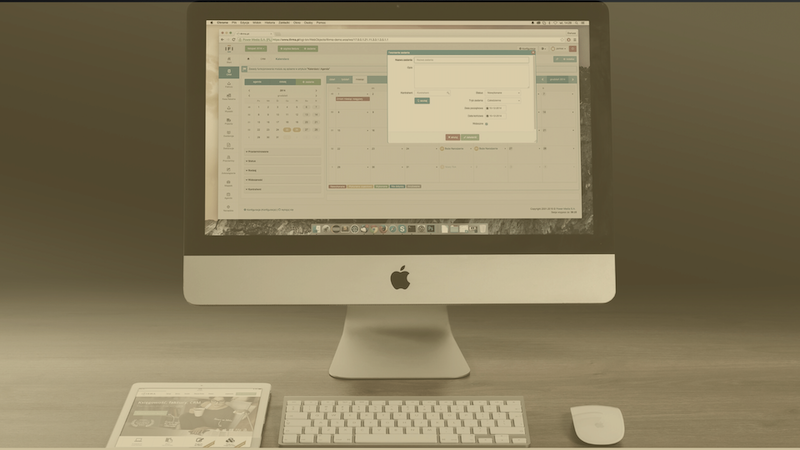
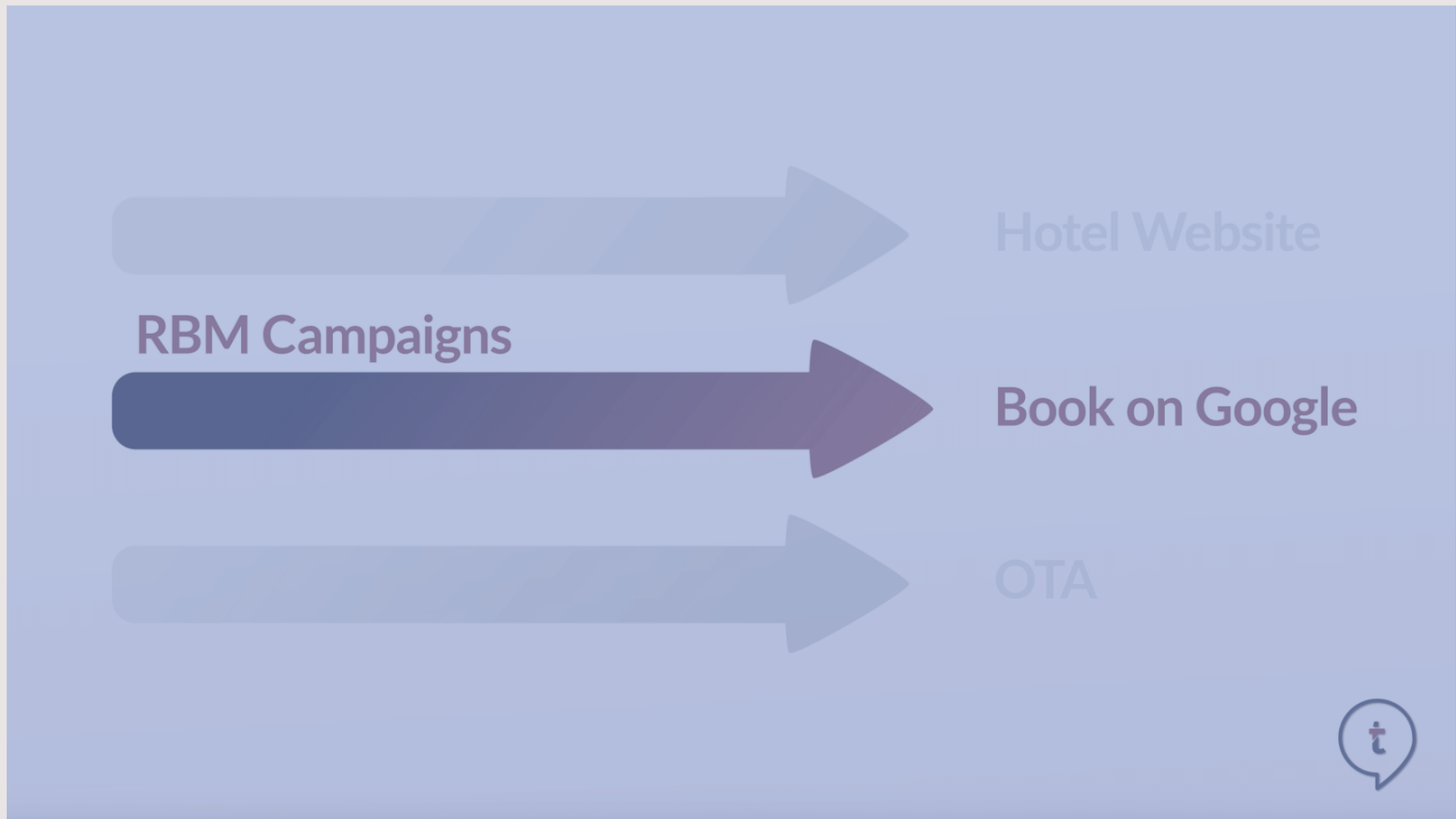

Create an account to access the content.
Get access to Articles, Video's, Podcasts, Think Tanks, Infographics and more.
Click “Sign In” to accept our
Terms of Service Privacy Policy